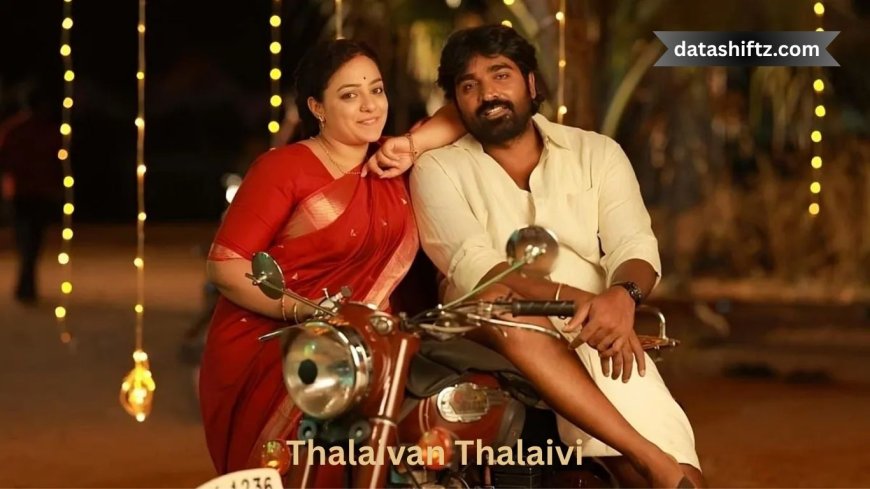Thalaivan Thalaivi Movie Review – A Tale of Power, Politics, and Legacy

Introduction: A Cinematic Tribute to Tamil Nadu’s Political Icons
Thalaivan Thalaivi, directed by A.L. Vijay, is a biographical drama that chronicles the extraordinary lives of two towering political figures of Tamil Nadu—M.G. Ramachandran (MGR) and Jayalalithaa. Starring Arvind Swami as MGR and Kangana Ranaut as Jayalalithaa, the film has garnered significant attention, not just for its star cast, but also for its emotional depth and political insight.
In this article, we dive deep into the film’s narrative, performances, technical aspects, and its relevance in today’s socio-political context.
Plot Overview and Historical Context
The film traces the journey of MGR, a beloved actor turned politician, and Jayalalithaa, his protégé and successor. It captures their personal struggles, political ambitions, and the complex mentor-protégé relationship that defined Tamil Nadu’s political landscape for decades.
The screenplay focuses on:
-
MGR’s rise to political power.
-
Jayalalithaa’s journey from cinema to becoming a powerful political leader.
-
The dynamics between loyalty, betrayal, and ambition.
This backdrop makes Thalaivan Thalaivi more than just a biopic—it’s a portrayal of Tamil Nadu’s political evolution.
Performances: Kangana and Arvind Steal the Show
Kangana Ranaut as Jayalalithaa
Kangana’s portrayal of Jayalalithaa is nuanced and compelling. She captures the grace, determination, and complexities of the ‘Thalaivi’ with precision. Her body language, speech modulation, and emotional depth make the character authentic and relatable.
Arvind Swami as MGR
Arvind Swami delivers a powerful performance as MGR, showcasing his charisma both on-screen and in the political arena. He successfully embodies the warmth and sternness that MGR was known for, making his character believable and empathetic.
Technical Aspects and Direction
Direction and Screenplay
Director A.L. Vijay handles a sensitive subject with care, maintaining a balance between political drama and personal narrative. The screenplay, though occasionally slow, is engaging and informative.
Cinematography and Music
The film’s visual style effectively recreates the era it depicts. Cinematographer Nirav Shah’s work stands out with its warm tones and period-appropriate settings.
Composer G.V. Prakash Kumar’s music complements the film’s mood, with some memorable tracks that echo the political and emotional undertones of the story.
Highlights: What Works and What Doesn’t
| Aspect | Strengths | Weaknesses |
|---|---|---|
| Storytelling | Authentic portrayal of political history | Some pacing issues in the second half |
| Performances | Strong lead performances | Supporting roles less impactful |
| Direction | Balanced and respectful | Could have been more gripping |
| Technical Quality | Excellent cinematography and music | Occasional outdated visual effects |
| Emotional Impact | Deep emotional connection | Some scenes feel dramatized |
Why You Should Watch Thalaivan Thalaivi
Top 5 Reasons
-
Insightful Political Drama: Offers a rare glimpse into the personal and political lives of two iconic leaders.
-
Outstanding Performances: Kangana and Arvind Swami bring depth to their characters.
-
Historical Relevance: Educates viewers about Tamil Nadu’s political history.
-
Strong Direction and Production Values: A polished film with attention to detail.
-
Emotional Narrative: The mentor-protégé relationship is beautifully portrayed.
Audience and Critical Reception
The film has received a mixed to positive response from critics and audiences alike. While many praise the performances and historical accuracy, some critique the film for its slow pace and occasional melodrama.
Audience Feedback:
-
Fans of Tamil cinema appreciate the respectful portrayal of beloved leaders.
-
New viewers find the film educational and inspiring.
-
Some political enthusiasts feel the film glosses over controversies.
Conclusion: A Worthy Tribute with Minor Flaws
Thalaivan Thalaivi stands out as a heartfelt tribute to two political legends. Despite a few narrative flaws, it succeeds in capturing the essence of their journey and the socio-political climate they shaped. For anyone interested in political history, biopics, or Tamil cinema, this film is worth watching.




























